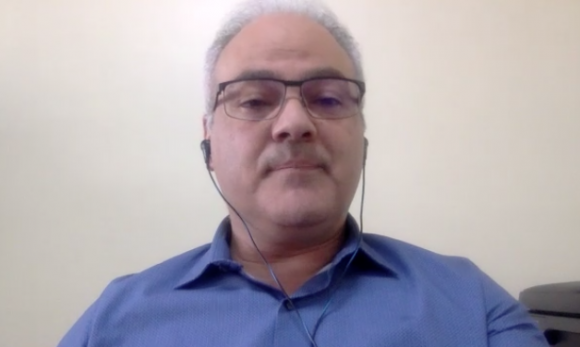On today’s show we are heading back to Brazil as we continue our season exploring the machining industry around the world.
Our guest is Ali Jamil Jomaa, executive director at Samot, one of the most significant automotive parts suppliers in Brazil. Jamil has been at Samot for 32 years and is an authority on the tricky business of running a large machining company in Brazil.
Main Points
Jamil gives his background. He says he has been working at Samot for 32 years, since he was 18 years old and loves what he does. He started at the company on the shop floor doing maintenance on CNC lathes.
Though he already had some training working on CNC machines, as a teenager Jamil worked for his father, who owned a Lebanese restaurant. He also happened to be dating the daughter of the owner of Samot, Tomislav Jancar. One day he was delivering food from the restaurant to her father (his future father in law), and they spoke about Jamil’s knowledge of CNC machines. This led Tomislav to ask Jamil if he wanted to work at the company. Over time he worked his way up to Executive Director. (3:00 – 6:30)
More About Samot
Jamil tells the story of Samot’s owner, Tomislav, immigrating with his family to Brazil from Austria when he was 13 years old as a refugee of World War II. In Brazil, Tomislav studied mechanics and then went to work at Mercedes Benz and Volkswagen. Then he started his own machining company in 1960. (6:30 – 8:15)
Jamil says that Tomislav’s business philosophy was to always reinvest in the company, keeping up with the latest technology. This legacy is clear today with the company’s many INDEX CNC multi-spindles and other late model turning equipment. (8:15 – 10:00)
Jamil says that the majority of Samot’s customers are Tier 2 automotive (87-88% of sales). He says the remainder of the parts the company produces are for the defense industry. (10:00 – 10:45)
Business in Brazil
Jamil talks about how Brazil’s low valued currency (currently approximately 5 Brazil real to one US dollar) effects his company’s exporting strategies. Jamil says that while other companies try alter their business models with fluctuating currencies, he prefers to continue to export regardless whether real’s value falls or rises. He believes if Samot can make parts efficiently it can remain competitive all the time. He says he has put three sales representatives in the United States to bolster the company’s exports. (11:00 – 12:45)
Jamil talks about why Brazil is a tricky place to do business. He says companies have to pay considerable taxes and provide lots of benefits for employees. He says the median salary for an employee at Samot is the equivalent of $10,000 US per year. He says the lowest paid person makes $5,000 and the highest paid makes $80,000. Jamil says that Samot has to pay 80% on top of an employee’s salary. This means if an employee makes $10,000 it costs Samot $18,000. The company has to pay several types of taxes and benefits such social security, private health care, and food (he says the company has a great restaurant). Employees also receive a 13th month of salary for vacation that is also increased by 30%. He says employees have to work 150 days per year to pay their taxes. (12:45 – 19:20)
Jamil talks about the disparity of income across Brazil’s population. He says Brazil has 210 million people. He says 47% Brazilians are “economically active people,” but among those people, 25 million are unemployed (searching for work). He says 40% of those economically active people are doing work off the grid. He says that 75% of Brazilians are medium to lower class and 19% of Brazilians are at the bottom “miserable class.” Jamil says that every month he and some friends distribute food to 250 poor people in the street. (19:20 – 24:00)
The Future of Brazil
Jamil says he sees a bright future for Brazil, but he doesn’t know how long it will take. He says the government has been making a lot of promises about privatization and taking away extra benefits given to government workers. He says if the tax laws are changed, the country can thrive because it has so many diverse resources. (24:00)
Jamil says he knows a lot of Brazilians who want to move to other countries. However, he says that most of them don’t want to move because of economic conditions. Instead, they want to get away from the corrupt government and crime. (26:20)
Jamil says in recent times he has realized a great spirit of the employees at Samot, seeing how well they have come together to deal with the obstacles presented by COVID-19. (27:00)
Question: Where are you vacationing during the COVID-19 summer?
Podcast: Play in new window | Download




